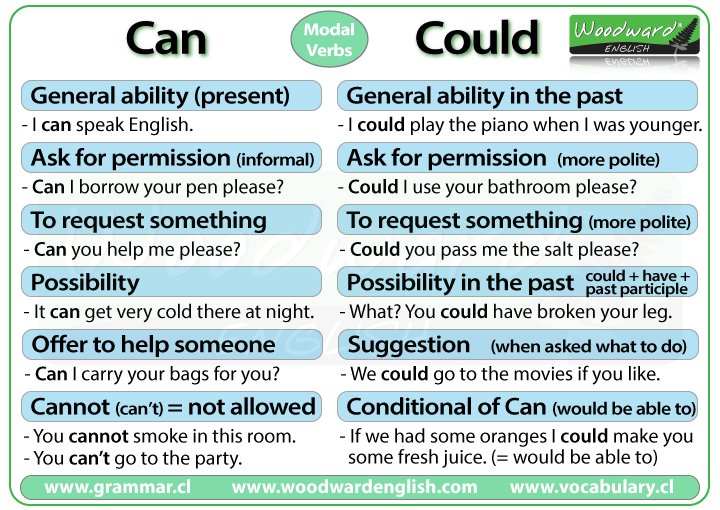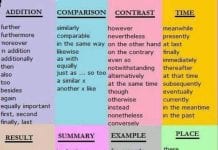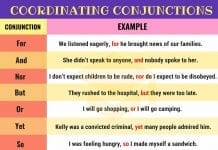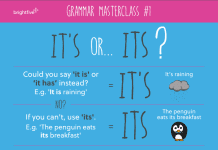
| CAN/COULD (AFFIRMATIVE) | CANNOT/COULD NOT (NEGATIVE) | BE ABLE TO (AFFIRMATIVE) | BE ABLE TO (NEGATIVE) | |
|---|---|---|---|---|
| PAST ABILITY | He could run very fast when he was a child. | He couldn’t run very fast when he was a child. | He was able to run very fast when he was a child. | He wasn’t able to run very fast when he was a child. |
| PAST REPEATED ACTIONS | I could run marathons when I was younger. | I couldn’t run marathons when I was younger. | I was able to run marathons when I was younger. | I wasn’t able to run marathons when I was younger. |
| PAST SINGLE ACTION, STATIVE VERB | She could feel the wind on her face. | She couldn’t feel the wind on her face. | She was able to feel the wind on her face. | She wasn’t able to feel the wind on her face. |
| PAST SINGLE ACTION, ACTION VERB | NOT POSSIBLE! | I couldn’t get to the airport on time because of the traffic. | I was able to get to the airport on time, even though the traffic was bad. | I wasn’t able to get to the airport on time because of the traffic. |
| PRESENT ABILITY | He can speak Portuguese fluently. | He can’t speak Portuguese very well. | He is able to speak Portuguese fluently. | He isn’t able to speak Portuguese. |
| FUTURE ABILITY OR SKILL | NOT POSSIBLE! | NOT POSSIBLE! | When you pass your driving test, you will be able to drive your own car. | You will not be able to drive your own car if you don’t pass your driving test. |
| FUTURE DECISIONS AND ARRANGEMENTS | You can speak to the Director next week. | The Director cannot speak to you tomorrow. | The Director will be able to speak to you next week. | The Director won’t be able to speak to you tomorrow. |
Can and could are modal auxiliary verbs which express ability, permission, request, offer or possibility.
Could is originally the past form of can, but it also has certain functions which can does not, for example, it is used in hypothetical conditions.
Examples:
- She can speak English very well. (ability)
- I could ride a bike, but I couldn’t swim when I was seven years old. (ability)
- You can have a coffee break after you type these letters. (permission)
- Could I have some more salad with the meat? (request)
- Can I help you? Can I carry your bag? (offer)
- It could rain this afternoon. (possibility)
- This can’t be true. (negative possibility)
- We could get there in time if you were driving a bit faster. (hypothesis + ability/possibility)
Can and could are also used to express the progressive (continuous) aspect of verbs of perception (see, hear, feel, taste, smell, etc.) and verbs like understand, remember, etc:
Examples:
- Can you see the woman standing over there?
- We were so near the sea that I could hear the seagulls.
- When she entered the kitchen, she could smell something burning.
- I put my keys to a safe place before swimming, but now I can’t remember where.
- She couldn’t understand what the foreigner was saying.
As the past form of can, could is used for general ability in the past and in reported speech.
Examples:
-
- When she was younger, she could work for ten hours without stopping.
- He said he could get his wife to come to the football with us.
It is not used when only one occasion is implied, except for negative sentences:
Examples:
- How many goals were you able to score on Sunday?
- They managed to get to the station in ten minutes by taking a taxi.
- I was able to find all the words in the dictionary, still I couldn’t translate the text.
In requests, orders and suggestions, could is more polite than can:
Examples:
- Can I use your phone?
- Could you please do me a favour?
- Do you think you could help me for a few minutes?
- Do the washing first, then you can clean your room.
- When you’ve finished the letter, you could translate this article, if you like.
- If you haven’t got anything to do this afternoon, you could clean the car.
When we ask for permission, could is more polite than can. Could is not used to give or refuse permission:
Examples:
- Can/Could I ask you something? – Yes, of course you can.
- You can go now if you want to.
- Can I stay here for another hour? – No, I’m afraid you can’t.

























